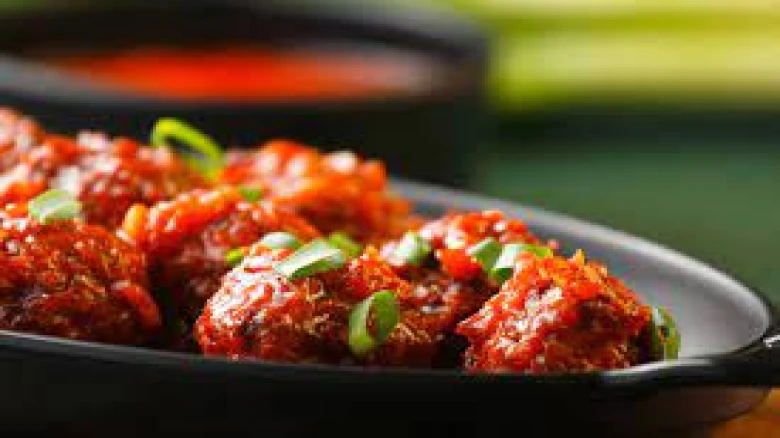The meal, which consists of deep-fried cauliflower florets served in a hot sauce, has generated controversy in Goa for the third year running.
Digital Desk: A culinary rebellion is brewing in several towns in Goa, and roadside stalls have become the battlegrounds. The simple gobi Manchurian, which has become increasingly popular in this coastal state in recent years and caused several stalls to sprout up, is at the center of this conflict.
The meal, which consists of deep-fried cauliflower florets served in a hot sauce, has generated controversy in Goa for the third year running.
The Goan town of Mapusa's municipal council last week banned vendors from selling gobi manchurian at fairs and along roadsides, closing a new chapter in the culinary war that started in 2022.
During a 'zatra' (feast) in January, Mapusa councillor Tarak Arolkar made the initial petition for the ban of the dish, which is a blend of Korean and Indian cuisine. "Zatra" is a Konkani word for pilgrimage celebrations held at Goa's temples.
A few days later, the Mapusa Municipal Council members approved the prohibition, forcing the dish into gastronomic oblivion.
The dish has been on the radar of food safety officials for some time due to concerns regarding the use of artificial coloring and hygiene, even though no formal explanation has been provided for the action.
Before allowing the vendors to set up shop, Priya Mishal, the head of the Mapusa Municipal Council, told IndiaToday.in that they had been ordered not to offer gobi manchurian.
However, Mishal refuted the claim that the action was driven by a cultural conflict between regional food and a north Indian specialty. She also emphasized how artificial colors are used a lot in gobi manchurian and claimed that this poses a number of health risks, particularly for young children.
"We found that the vendors were using substandard materials, sauces and synthetic colours for making gobi manchurian and were not maintaining hygiene as well, prompting us to ban the sale of this dish," Mishal told India Today.
A food safety officer stated that the usage of "reetha" powder and inferior cooking sauces were the reasons behind Goa's gobi manchurian crackdown. 'Reetha' powder, he continued, was usually used for laundry.
"They use this powder in the flour and cornstarch in the batter so that after deep-frying, the cauliflower florets remain crispy for a long time," the officer stated to The Times of India.
The Mapusa Municipal Council's decision is consistent with a similar crackdown that other Goan civic organizations have initiated.
Six gobi manchurian stands in Ponda's Kapileshwari and Sateri Devi were closed in 2023 as a result of complaints from the community regarding unclean practices.
Following directives from India's Food and Drug Administration (FDA), the Mormugao Municipal Council prohibited vendors from serving gobi manchurian at the Saptah fair held at the Shree Damodar temple in Vasco last year. A motion to outlaw the dish had also been approved by the council.
The FDA issued the order following raids on these types of stands, during which it discovered that the stalls were devoid of an appropriate location for washing, enclosed buildings, and access to potable water for removal.
Prior to 'Navo Somar' celebrations, the Bicholim municipality in North Goa also took action against gobi manchurian outlets. Goddess Parvati is worshipped in this form during the festival.
On social media, however, there has been controversy regarding the recent Goan war on gobi manchurian, with some questioning why the fast-food dish has left the government not feeling well.
"Goa has banned Gobi Manchurian! Retaliation for the clash with cowherds by the Chinese army in the borders?" noted one user.
Another user lamented, "One can get injected with all sorts of toxins through in the name of health, but one cannot enjoy a spicy, oily, crispy, and yummy Gobi Manchurian!"

Leave A Comment